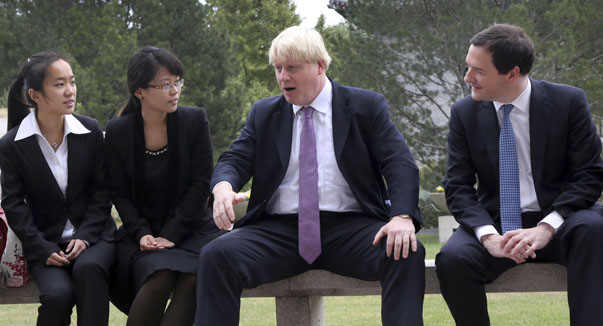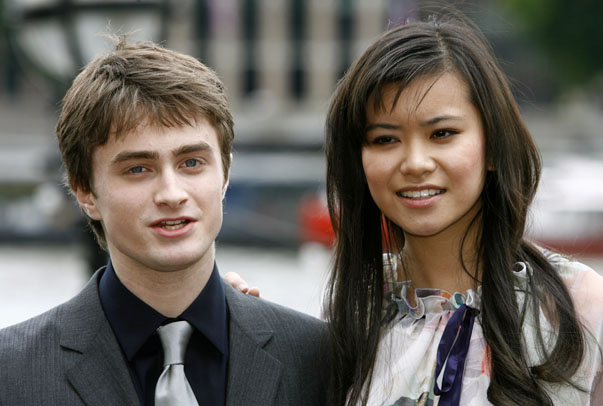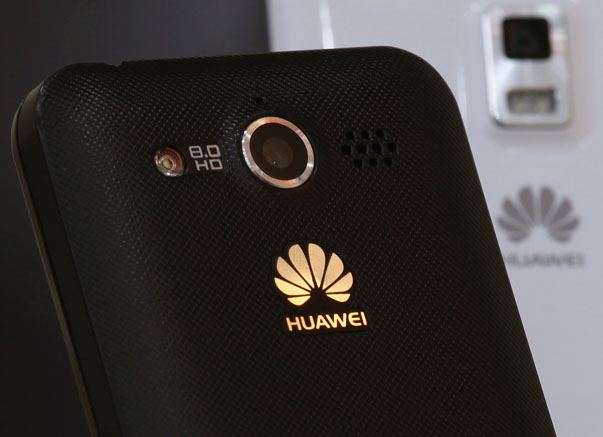The background
You wait for ages for a potential future British prime minister, then two turn up at the same time.
That’s what the residents of Beijing might be thinking, having been blessed with simultaneous visits from the mayor of London and the Chancellor.
Both Boris Johnson and George Osborne are in China to drum up trade, and they shared a platform at Peking University to stress the growing ties between Britain and China. Did they pass the FactCheck test?
 “Who, according to JK Rowling, the author of the Harry Potter novels, was Harry Potter’s first girlfriend? Who is the first person he kisses? That’s right, Cho Chang – who is a Chinese overseas student at Hogwarts school.”
“Who, according to JK Rowling, the author of the Harry Potter novels, was Harry Potter’s first girlfriend? Who is the first person he kisses? That’s right, Cho Chang – who is a Chinese overseas student at Hogwarts school.”
Boris Johnson, 14 October 2013
Sources within the strange world of Harry Potter fandom insist that, although Ms Chang is indeed the boy wizard’s first crush, there is no mention in the novels of her being a Chinese overseas student.
In fact, it’s a matter of some ambiguity whether she is Chinese at all. JK Rowling came in for some stick for giving the schoolgirl an Asian name that apparently doesn’t make sense in any language.
Chang could be a Chinese surname but Cho doesn’t sound like a first name in the major Chinese dialects.
Both could be Korean surnames, we are told.
The Scottish actress Katie Leung, who plays Cho in the film series, said her distinctive Glasgow accent helped her get the part. This suggests that the producers, if not Rowling herself, envisaged her as a British teenager of east Asian heritage.
Full disclosure: we haven’t read all seven Harry Potter novels today. If you have, and can prove us wrong, get in touch.
 “One hundred and sixty million Chinese are watching Downton Abbey, which is more than double the number of people who live in the UK.”
“One hundred and sixty million Chinese are watching Downton Abbey, which is more than double the number of people who live in the UK.”
George Osborne, 14 October 2013
Tom Chivers of the Daily Telegraph has already nailed this as a work of fiction. He traces the claim to this research from Chinese media analysts EntGroup.
The report actually says: “Hit British dramas like Downton Abbey have been widely embraced by Chinese audiences, both through the country’s state broadcaster and pirated videos online, and are expected to have 160 million online followers in China in the next two to three years.”
So it’s a prediction about an unspecified number of programmes like Downton, not a hard fact about the series itself.
“Take your great high-tech company, Huawei. There are some western governments that have blocked Huawei from making investments. Not Britain. Quite the opposite.”
George Osborne, 14 October 2013
Indeed. Britain has welcomed Huawei Technologies Co Ltd with open arms, while other countries have been more cautious.
The Chinese telecoms and computer network giant announced last year that it will invest £1.3bn in its UK operations over five years, creating 700 jobs on top of the 800 it already employs in this country.
The news was welcomed by David Cameron, who said it was evidence that Britain is “open for business”.
Huawei was founded by an ex-Chinese army officer, Ren Zhengfei, in 1987 and has grown into China’s biggest exporter and the world’s largest supplier of network infrastructure.
The company says it is an entirely private enterprise, mostly owned by its employees, but critics have raised concerns about its relationship with the Chinese government and the country’s military, widely seen as a leading exponent of cyber-espionage.
The government has since downplayed warnings about Huawei from the intelligence and security committee – the cross-party group of MPs that scrutinises Britain’s spy agencies.
The company signed a major contract to supply BT with hardware in 2005 when, according to the committee, “the process for considering national security issues at that time was insufficiently robust”.
MI5 told MPs in 2008 that “theoretically, the Chinese state may be able to exploit any vulnerabilities in Huawei’s equipment in order to gain some access to the BT network, which would provide them with an attractive espionage opportunity”.
As far as we know, this remains a purely theoretical risk, and in 2010 Huawei agreed to fund a Cyber Security Evaluation Centre, designed to test its own products for security risks.
Huawei said the centre was “like a glasshouse: transparent, readily accessible and open to regulators and our customers”.
While the operation is headed by a trusted ex-deputy director of the government listening post GCHQ, it is still under the control of Huawei, not the British government.
Addressing a reception hosted by Huawei this summer, universities and science minister David Willetts said that the issues raised by the committee dated “from some time ago, under the previous government”.
He added: “That was then. This is now. I am confident we can ensure a good, solid, long-term relationship with Huawei.”
Britain’s intelligence and security committee is not the only body to express concern about Huawei and its links to the Chinese state.
The former head of the CIA, Michael Hayden, said this summer that he had seen hard evidence that Huawei had “shared with the Chinese state intimate and extensive knowledge of the foreign telecommunications systems it is involved with”. The company vigorously denied the allegation.
The US, India, Australia and Canada have all banned Huawei from winning some key infrastructure contracts, citing security concerns.
Last year America’s House of Representatives’ intelligence committee said the company should be barred from US markets because it “cannot be trusted to be free from foreign state influence”.
Huawei has consistently said it is completely independent from the Chinese government and challenged its critics to provide evidence of supposed wrongdoing.
So Mr Osborne is absolutely right to say that Britain is bucking a global trend by embracing investment from Huawei. This is either a bold, groundbreaking move that will promote jobs and growth, or an act of dangerous naivety.
By Patrick Worrall







